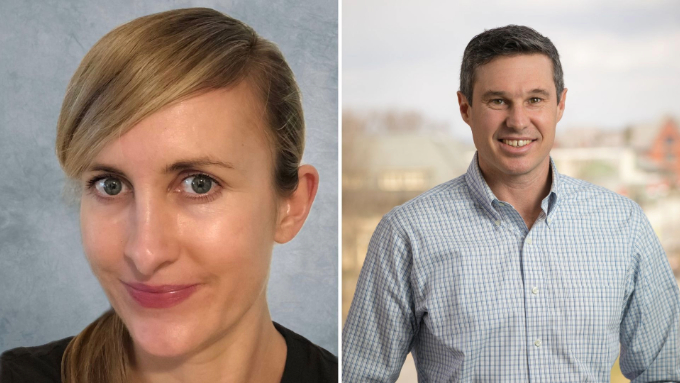UCSD Main Campus
24 April 2025
Extended Studies Research Center Creates Impact Through Evaluation

Launching an ambitious research project or training program requires a significant investment, and many federal and state grants require an independent evaluation to assess project impact.
A team of evaluators at UC San Diego’s Center for Research and Evaluation (CR+E) brings expertise and a track record to such projects, helping demonstrate program efficacy to funders and opening doors to future grant opportunities.
"There's no progress without evaluation. Thanks to CR+E, we've been able to make a real difference—and we're just getting started,"
Launching an ambitious research project or training program requires a significant investment of time, energy, and resources.
Amidst this effort lies a crucial question: How can you tell for sure if your program is achieving its goals and creating meaningful change? The answers to this question can mean the difference between missed opportunities and project success.
At the UC San Diego Center for Research and Evaluation (CR+E) within the Division of Extended Studies, a team of evaluators will help you measure your project’s success while also making improvements along the way.
“We’ve developed a reputation for being reliable and delivering high-quality work,” said Georgia Kovacs, Ph.D., CR+E Executive Director. "We know how to create evaluation plans that address the key questions teams need answered and deliver actionable, meaningful results."
Kelly Nielsen, Ph.D., CR+E Assistant Director explained, “We bring quantitative and qualitative methodological expertise to projects, which includes designing surveys, conducting interviews, running focus groups and developing full-scale evaluation plans."
Many federal and state grants require an independent evaluation, but CR+E remains an underutilized resource on the UC San Diego campus.
"I think some researchers don't realize we’re here," Kovacs acknowledged. "We want them to know they don't have to go outside the university for evaluation services."

Georgia Kovacs, Ph.D, CR+E Executive Director (L) and Kelly Nielsen, Ph.D., CR+E Assistant Director (R) lead the team that provides independent evaluation of research projects.
The Importance of Evaluation for Growth and Improvement
The primary work of CR+E is to offer evaluation services that provide actionable insights and help programs measure their impact. These evaluations not only help project teams achieve their goals but also demonstrate program efficacy to funders and open doors for future grant opportunities.
"Once teams see the results of our evaluations, they often realize how valuable it is,” said Nielsen. “It's not just about meeting requirements—it's about learning how to improve your program moving forward."
CR+E excels at providing both formative and summative evaluations, ensuring programs meet their goals while being able to adapt in real time.
"We don’t just deliver a report at the end of a project saying, ‘It did or didn't work,’" said Kovacs. “We work with teams to provide real-time feedback that can inform adjustments and improvements."
Partner Success Stories: Evaluating an NSF-Funded Internship Program
For Pam Cosman, Distinguished Professor of Electrical and Computer Engineering in the Jacobs School of Engineering, CR+E's ability to pinpoint key areas for improvement was a game changer. The evaluation feedback was instrumental in helping her refine her NSF-funded Summer Internship Program for Neurodiverse Young Adults.
"One of the most important aspects of our partnership with CR+E was using their evaluations to refine our processes," Cosman shared.
She enlisted CR+E to evaluate a summer internship program that aims to help young adults on the autism spectrum develop skills in graphic and video game design. The ultimate goal is to enhance their career readiness.
CR+E's evaluations prompted two key improvements in the program.
"We originally thought the hybrid model would offer the 'best of both worlds’ to our interns, but CR+E's evaluation showed that interns found in-person days more engaging, productive, and conducive to quicker communication," said Cosman. "Their insights led us to discontinue the hybrid model and focus on in-person activities."
The second improvement was enhancing resume-building opportunities. The CR+E evaluation uncovered the value of publicly showcasing interns' work to enhance their resumes and portfolios.
"Their evaluation found that the interns really appreciated having their work available for others to see," Cosman explained. "It's one thing to list an internship on a resume, but being able to point to publicly available portfolio work adds so much more value. We wouldn't have caught that without the insights from the evaluation.”
CR+E’s evaluation also critically demonstrated the program's impact to current and future funders like the Motorola Solutions Foundation and the Foundation for Developmental Disabilities.
"These agencies want to know that we're making a difference," Cosman noted. "The pre- and post-surveys were especially important for showing how the interns' confidence, communication skills, and interest in certain fields evolved over time."
"Basically, CR+E helped us figure out what we should keep doing, what we should do more of, and what we should stop," Cosman added.
Partner Success Stories: Evaluating a UnitedHealthcare-Funded Project to Expand the Child Psychiatry Pipeline
Desiree Shapiro, MD, a clinical professor of psychiatry in the UC San Diego School of Medicine, was another researcher who turned to CR+E for evaluation support.
Her project, the UC San Diego Child and Adolescent Psychiatry Inclusive Excellence Program focused on expanding the pipeline of child psychiatrists and increasing diversity, inclusion, and mental health awareness among medical students and trainees considering a career in psychiatry.
"The evaluation was everything," said Shapiro. "It guided key changes throughout the project, supported us in communicating findings to stakeholders, and ultimately led to deeper understanding and a positive impact over the four years."
For Shapiro, CR+E’s value extended beyond their findings to the professionalism and care they brought to the project.
"Their focus on dignity, compassion, and empathy made a huge difference," she explained. "They ensured participants felt valued throughout the evaluation process, which was particularly important given the sensitive nature of some discussions."
CR+E's detailed reports highlighted the program's impact. As a result, the program has gained national attention, with other institutions seeking to replicate its success.
"There's no progress without evaluation. Thanks to CR+E, we've been able to make a real difference—and we're just getting started," Shapiro said.
Evaluations Across Disciplines
One of CR+E's defining strengths is its ability to apply its expertise to a wide range of disciplines. The Center's work spans a diverse spectrum of disciplines and projects, from evaluating engineering internships, medical student training programs, and hate incident reporting hotlines, to tobacco prevention initiatives in California Tribal communities.
“They're not just following a template," said Dr. Wael Al-Delaimy, M.D., Ph.D., Professor at the Herbert Wertheim School of Public Health and Human Longevity Science, and a prolific principal investigator whose work includes tobacco control, water access for refugees, and climate change interventions. “They are highly qualified, with Ph.D.s or master's degrees, and know how to tailor their approach to fit each project. Their work ensures that our projects meet their goals and make a real difference in the world."
Building Trust Through Collaboration
Another defining feature of CR+E is its partnership-driven approach. The center doesn't simply provide evaluations; it collaborates closely with researchers from the earliest stages of a project through final reporting, ensuring success.
CR+E often gets involved during the proposal phase, offering detailed evaluation plans at no cost to help researchers meet grant requirements. This early support not only enhances the likelihood of securing funding but also sets the stage for effective, well-structured projects.
"We know how critical it is for researchers to secure funding," said Kovacs. "Our evaluation plans can make a difference, and we're happy to support our academic colleagues from the start."
Learn More
To learn more about CR+E and their services, visit https://extendedstudies.ucsd.edu/about-us/center-for-research-evaluation, or contact the team directly at cre@ucsd.edu or 858-822-0747.
